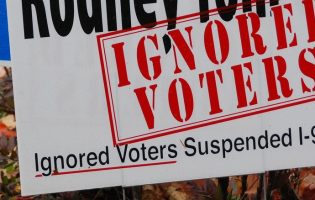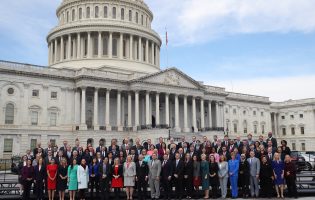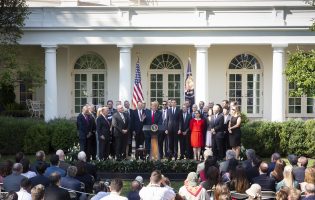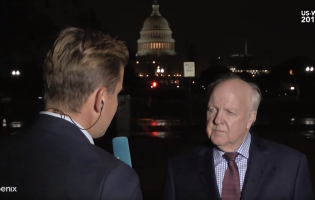
Negative Campaigning in the U.S. Midterm Elections
Role Model or Warning for German Campaign Strategies? Negativity has long been a part of American election campaigns, and the 2018 midterm campaign was no exception. In the lead-up to …

Europe Faces Open Doors but Uphill Battles with New Congress
“The U.S. is bigger than the White House,” declared German foreign minister Heiko Maas in a recent interview. In response to President Trump’s well-documented ambivalence toward alliances, German leaders are …

How Much Can Education Serve as a Mechanism for the Integration of Minorities and Immigrants?
Experiences from Germany and the United States In both the United States and Germany education is key for the successful integration of society and an acceptance of diversity. Diversity education, …

The Radicalization of the Extreme Right
The Rallies in Charlottesville in August 2017 and Chemnitz in August 2018 In August 2017, members of multiple far-right movements rallied in Charlottesville, Virginia, with the goals of uniting the …
Recent Authors
AGI provides knowledge, insights, and networks as tools to solve the challenges ahead.
Support Our Work
The 2018 Midterm Elections: The Transatlantic Alliance Outside the DC Beltway
As a DAAD/AGI Research Fellow from October to November 2018, Dr. Niklas Helwig analyzed U.S. domestic perception of the transatlantic alliance during the 2018 midterm elections. Lately, the U.S. administration has …

Transatlantic Relations and the Digital Economy Post-USMCA
The TPP is dead, long live the USMCA. Despite the United States withdrawing from the Trans-Pacific Partnership (TPP), the digital trade chapter of the United States Mexico Canada Agreement (USMCA) …

Building a European Germany: Next Steps?
In 1989, the fall of the Berlin Wall—and subsequent German unity—was a dream come true for Germans. Over the next few years the dream of a larger Europe, whole and …
Episode 02: The Wall: Legacy of Divided Berlin
When the Berlin Wall fell on November 9, 1989, it was a surprise to many. For an entire generation, the Berlin Wall was the most iconic physical manifestation of the …

Merkel’s Retreat
Angela Merkel’s name appeared nowhere on the ballot October 28 as voters went to the polls in the western German state of Hesse. But this election sealed the fate of …







